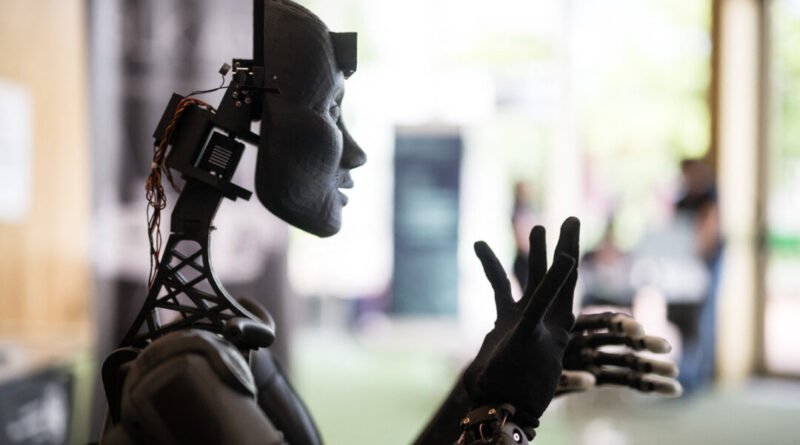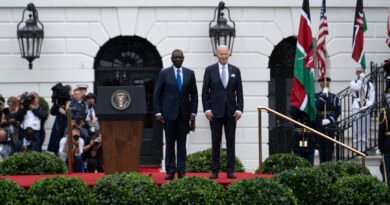Navigating the Controversial Intersection of AI and Entertainment: Actor Accuses AI of ‘Stealing’ His Voice
Cooper Mortlock’s voice was featured in a cartoon series, but he did not participate in the recording of the script.
In 2022, voice actor Cooper Mortlock was engaged to work on an animated series.
Initially, everything was going smoothly: the job was secure, the employer was friendly, and payments were made on time.
However, Mortlock, based in Sydney, was informed that the series would be discontinued after the completion of episode 30 out of the contracted 52-episode season.
A year later, Mortlock was surprised to discover that another episode had been released on YouTube where he heard his voiceover, despite not being involved in it.
Mortlock suspects that he is one of many artists falling prey to advancements in artificial intelligence (AI) and the issue of “voice theft,” where AI is used to replicate or “clone” the voices of artists without permission.
“[The manager] didn’t mention this to us. He didn’t compensate us, nor did he seek our approval,” Mortlock told The Epoch Times.
A Gray Area in Legal Terms
After consulting with the media union, Mortlock’s team sent a cease-and-desist letter to the employer, requesting the removal of the episode and destruction of any AI training models.
In response, the company claimed that AI was not utilized, and that current vocal technology was used to “mimic” the voices of the cartoon characters.
“That’s a falsehood that can be easily proven by just listening to it,” Mortlock asserted. “It is my voice manipulated through AI. It sounds like a poor imitation of my voice.”

Voice actor Cooper Mortlock. Courtesy of Cooper Mortlock
However, this issue remains legally ambiguous.
“Currently, the only way we could prove that in our legal system is if we had a copy of the recording or the vocal tones used, like a recording of the source code they employed,” he mentioned.
Naturally, the employer’s denial of this request followed.
Mortlock engaged AI experts to examine the recordings, which confirmed manipulation. Unfortunately, this technology was too recent to be admissible as evidence in court.
The recording company argued that the original contract permitted the use of AI.
Mortlock’s argument is that the contract was drafted before the proliferation of AI voice cloning and generation.

A man takes a picture of robots during the World Artificial Intelligence Conference (WAIC) in Shanghai on July 7, 2023. Wang Zhao/AFP via Getty Images
“Currently, we are unable to take action because the legislation surrounding the legal system and the contracts are not equipped to address how this technology operates,” he admitted.
The Epoch Times has reached out to the federal Department of Industry, Science, and Resources for a response but has not received one in time for publication.
Former Chief Scientist Believes There’s Room for Hope
Ian Oppermann, the ex-chief data scientist of the New South Wales government, expressed concerns about job losses due to AI’s capacity to replicate, synthesize, or evolve existing work.
“The question remains on how the rights of artists are safeguarded when original content can be evolved,” he shared with The Epoch Times.
While Oppermann acknowledged that AI could potentially replace some roles, he emphasized that there might still be a place for artists.
“AI can be seen as a very sophisticated mimic. I believe there will always be something distinct about a ‘real’ human actor’s response compared to a synthetic one,” he stated.
“It’s akin to a-la-carte dining versus standardized fast-food consumption.
“Fast food may be convenient and popular, but arguably, a-la-carte is much more enjoyable if you can afford it.”
Simultaneously, Oppermann suggested that the government should continue exploring protections against such technology.
“Most legislation was developed to safeguard individuals from other individuals in one way or another,” he pointed out.
“We need to shift that perspective to protecting individuals from intelligent ‘non-people’ considering the distinct capabilities of AI .”
Mortlock Highlights Impact on Broader Industry
Meanwhile, Mortlock noted a decrease in voice-over opportunities in the industry.
A colleague, also a full-time actor, informed him that he had lost over half of his income to AI.
“He used to narrate items like corporate or explanatory videos or internal training videos, which aren’t necessarily for commercial use but for internal purposes. All of this has been taken over by AI,” Mortlock disclosed.
Given the rapid advancement of AI technology, the voice actor expressed concerns about the future of his profession.
“I went through a period where I believed that voice-over work would vanish entirely, or that it would become a much smaller field because I’ve witnessed numerous corporations and companies embracing AI and attempting to acquire as many AI voice cloning sources as possible,” he said.
Remaining Optimistic
However, Mortlock shared his growing optimism about the industry following pushback in Australia and globally.
Citing the SAG AFTRA strike in the United States over AI’s impact on video games and a recent Senate inquiry in Australia, Mortlock observed increased awareness of the issue.
The voice actor also highlighted a rising understanding of the ethical implications of AI and its detrimental effect on people’s employability.

SAG-AFTRA union video game performers strike outside Warner Bros. Games, part of the Global Streaming and Interactive Entertainment unit of Warner Bros. Discovery, in Burbank, California, on August 1, 2024. Valerie Macon/AFP via Getty Images
Media Union Advocates for ‘AI Tax’ and Enhanced Safeguards
During a Senate inquiry hearing on AI in July, Matt Byrne, a representative from the Media, Entertainment and Arts Alliance union, emphasized the need for changes in workplace regulations.
“It is a decision of these companies to adopt tools systematically to achieve their objectives,” he remarked.
“If they choose to do so, then we believe they should be obliged to consult and collaborate with employees on the ethical utilization of these tools.”
Byrne also proposed implementing new regulations requiring AI-generated content to be labeled or watermarked to indicate its origin.
“We believe that the responsibility for content produced by AI should rest with both the overseeing company and the AI developers,” he stated.
“Hence, we aim to ensure accountability from both the developer side, such as OpenAI, Amazon, Google, etc., as well as the companies incorporating these tools in their operations.”
Furthermore, the MEAA recommended introducing an “AI tax” on businesses that substitute their employees with digital tools.





